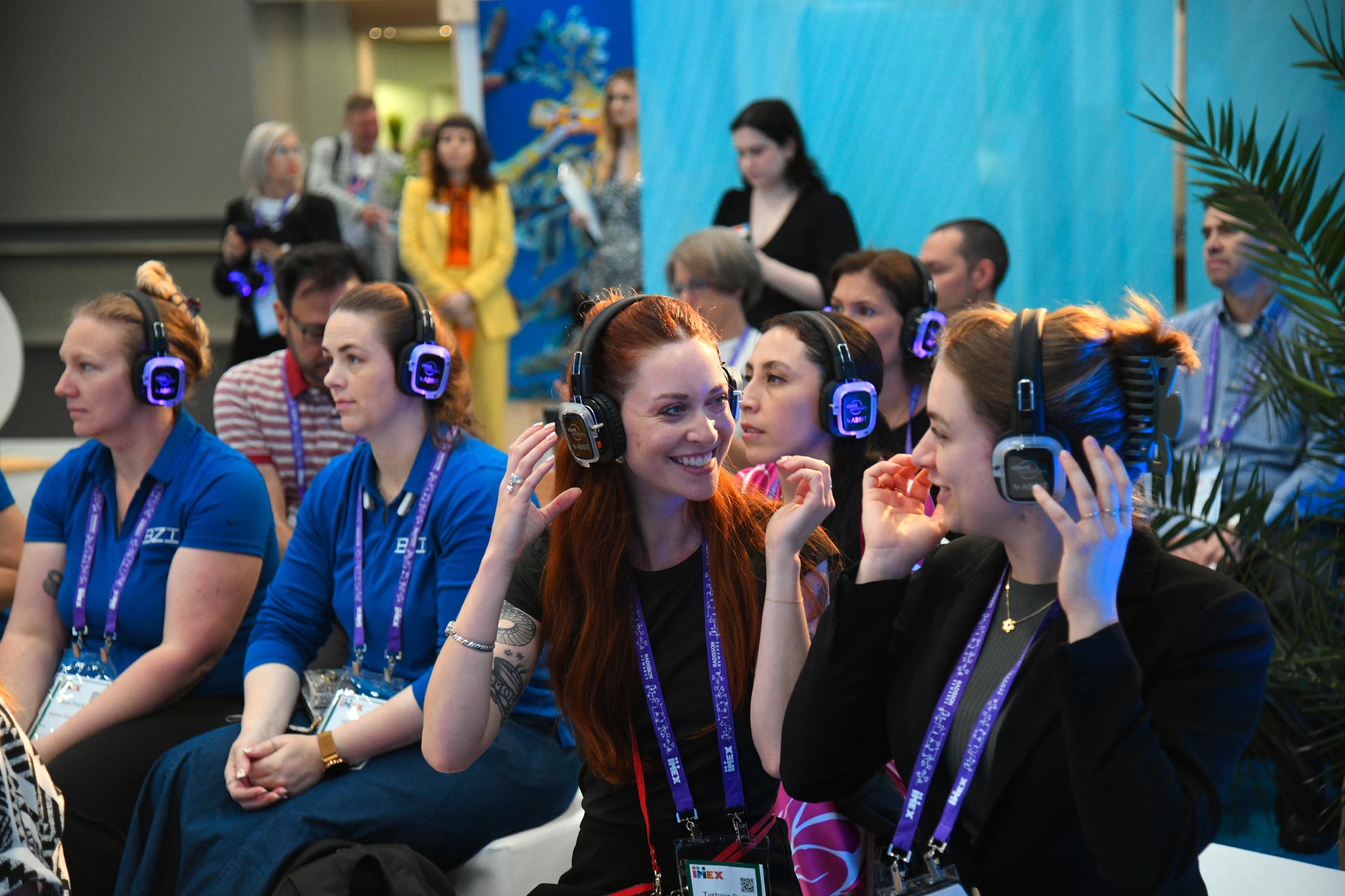Doctor Johan Rosengren is an Associate Professor at the School of Biomedical Sciences, University of Queensland. His position is research-focused, and he works primarily on bioactive peptides. These naturally-occurring substances have evolved for specific functions, and they have been used in both biotechnological and pharmaceutical applications. His laboratory isolates and characterises novel substances, and through molecular design aims to develop them for innovative purposes.
Dr Johan Rosengren completed his PhD, which focused on structure-activity relationships of antimicrobial peptides, under the supervision of Professor David Craik at the Institute for Molecular Bioscience, University of Queensland, in 2003. After two years of post-doctoral work at IMB, he moved to Sweden in 2005 to take up a position as Assistant Professor at Linnaeus University, Kalmar. During 2008–2009 he held a joint appointment between Linnaeus University and Uppsala University. In 2009, he was awarded the Swedish “Docent” title before returning to University of Queensland as a Senior Research Officer, funded by an NHMRC Career Development Award and an ARC Future Fellowship.
His research focuses on structure-activity relationships of bioactive peptides, in particular, peptide hormones and the use of NMR spectroscopy in the design of novel peptide drug leads.
Dr Johan Rosengren grew up in a small village on the island of Öland, Sweden.
“My dad was a local electrician, and I worked with him on weekends and school holidays since I was 12 or 13 years old. I think everyone always thought that I would take over the business, which would have been a natural choice. As much as I liked the practical work, I also enjoyed school and pretty early on liked science in general and chemistry in particular. During the last year of high school, we went to an expo about higher education and career paths in Stockholm. There were some really cool young scientists presenting there, and I decided then that was what I wanted to do and that my goal was to become a doctor by the time I was 26 years old. Somewhat ironically, I handed in my PhD thesis eight years later, just one week after I turned 27. I’m still not sure if that can be considered as -acceptable within the margin of error or if I failed …”
“Somehow I ended up doing my PhD in Australia, which was never the plan; I just wound up tagging along with a mate who wanted to do his masters project work in Brisbane and needed some company. I liked Brisbane and University of Queensland, met my future wife, and the rest is history.”
Dr Johan Rosengren’s work is centred around the structural biology of small proteins referred to as peptides. These are signalling molecules that are produced by all organisms for communication between cells in different parts of the body and for defence or capture of prey as components of animal venoms. By understanding how these molecules can, very specifically, interact with receptors and evoke functional responses, Johan Rosengren hopes to be able to design drugs that can mimic their activities and treat a wide range of human diseases. The peptide field is growing rapidly, and he thinks in the near future, we will see a lot more of this type of pharmaceuticals on the market.
“The challenge with peptides as drugs is that the body generally breaks them down as they are, by default, meant to be signals that can be turned on and off depending on conditions, for example the mechanism through which the peptide hormone insulin controls your blood sugar levels. Peptides and proteins in food are also broken down by your body to be reused as building blocks for new proteins. The main challenges are related to designing in chemical features that make our peptide stable and long lasting so that when used as pharmaceuticals their unique bioactivities can be taken advantage of.”
Johan Rosengren’s colleague, Dr Christina Schroeder is researching peptides with the aim of developing a treatment that allows people to manage chronic pain, exploring the relationship between drugs and receptors, focusing on expanding on the traditional lock and key mechanism to include the membrane surrounding the receptors. She aims to unlock a detailed understanding of how venom-derived peptides engage with receptors in the body and how we can use this knowledge to design more potent drugs with fewer side effects.
“I always come away with new ideas and inspiration from a meeting”
“For a long time now, I have used venomous creatures and their venom, to try to come up with new therapies for a range of different diseases, but I am focusing mainly on pain. Especially chronic and neuropathic pain, which are highly prevalent conditions, but one of those diseases that people do not talk about.
“Peptides are underexplored in drug discovery. Peptides are natural, built of amino acids that we need every day, and that we have in our bodies. Because they are natural components, they tend to be less immunogenic, so you do not tend to have an immune response. They are usually highly potent, and you can get better receptor selectivity with peptides, which means that you can reduce side effects. These are some of the reasons why I think they are good, and why I am pursuing them as drug leads.”
Spiders and snakes and other venomous creatures have a library of up to 200 peptides in their venom targeting different receptors in humans. One bite from a spider or a snake can be lethal since the prey gets exposed to the whole cocktail of venom peptides, in principle shutting down the nervous system in the body. By isolating one peptide from this cocktail, you can achieve target specificity thereby potentially treating human disorders including pain, but also epilepsy and stroke.
Johan Rosengren attended his first meeting when he went to the Australian and New Zealand Society for Magnetic Resonance (ANZMAG) conference in 2000, only a month after he started his PhD studies.
“It was held at a ski-resort outside Melbourne but during summertime, and it was awesome. The conference dinner was held at a hut up on the mountain and to get there you got handed a welcome drink and were put in a ski-lift heading up the slope. I still have friends from that conference.”
His participation in international conferences and meetings has always been very important.
“I always come away with new ideas and inspiration from a meeting and in my field your international connections are critical for being able to achieve the results you want, as there are always people that can do some experiments that you cannot.”
Through the years he has been to many congresses, conventions, conferences and events concerning his professional job.
“I have probably been to somewhere around 40–50, I usually go to two or three [conferences] per year. I attend to present my work, to listen to work from colleagues, to form collaborations and last but not least they are generally a lot of fun.
“Australia is a fantastic place to visit, and lots of delegates like coming here. It is also pricewise pretty good value. I just booked in to go to a meeting in the U.S. and I worked out it would be a lot cheaper for the U.S. people to fly to Australia and come to our meeting than to go to their own local meeting. Scientifically, my field is very strong in Queensland, so it makes sense to organise the meetings here in Australia. I went to the American Peptide Symposium in California in June as a delegate, and I organised the Australian Peptide Conference in Port Douglas, Queensland in September. The last outing this year will be as a speaker at ANZMAG in the Margaret River wine district in Western Australia in November. Normally, I plan one year at a time, but we have already started the planning for the larger International Peptide Symposium, which I am involved in organising in Brisbane in 2021. It will require a fair bit of work.”
The networking part of his job is essential, for knowledge development but also for collaboration to be able to fund and carry out top-level international research. Interdisciplinary approaches are the way to solve complex questions.
“Australia is a fantastic place to visit, and lots of delegates like coming here”
“It requires a lot of work to maintain and develop my professional network, and indeed just to keep my research job in the first place! Putting together a sustainable and fundable research programme is not straightforward; it’s not only the research, the funding sources also constantly change. Being part of a national network is actually a key part of the job. People get to know you, your work, and what you are about. It helps when you are trying to publish work and fund new projects,” says Johan Rosengren.
“There is a big international network of peptide scientists working on venom research and collaborations are crucial for scientific discoveries,” says Christina Schroeder. “Conferences are a great place to form collaborations and learn about what other people do. Seeing collaborations form during a conference and then reading the papers arising from a scientific partnership is very rewarding and is why I am involved in a number of conferences around the world.”
In 2018, Brisbane’s economic development board Brisbane Marketing launched the Lord Mayor’s Convention Trailblazer Grant, an initiative designed to empower the city’s early-career professionals and researchers to make their mark and to grow Brisbane’s reputation as a global conventions city.
Johan Rosengren and Christina Schroeder were two of the seven winners of the inaugural grant and travelled to Tokyo in December 2018 to attend the International Peptide Symposium.
Working with Brisbane Marketing and industry stakeholders the Brisbane Convention & Exhibition Centre and Tourism and Events Queensland, the pair won the bid for Brisbane to host the 2021 International Peptide Symposium, which will see approximately 600 scientists converge on the city, providing opportunities for networking, collaboration and knowledge sharing.
“Collaborations are essential for success in research and hosting the symposium in Brisbane will help further strengthen and grow our international knowledge network. It will be an exciting opportunity for the University of Queensland to showcase its world-class research, and for a large number of peptide scientists at University of Queensland and other universities across Brisbane and Queensland to interact with leading scientists from around the world,” says Johan Rosengren.
Brisbane’s excellence in Life Sciences research has helped boost Australia’s reputation as a leading player in the world-wide peptide community. Hosting the International Peptide Symposium in 2021 will facilitate further networking opportunities creating long-lasting collaborations and partnerships with the city.
The support from Brisbane Marketing and Brisbane Convention & Exhibition Centre was crucial to them winning the bid. The team assisted them with applying for conference funding and made the whole process easy with support every step of the way.
“The programme has significantly helped raise my international profile in my field, and I have made many new important connections and future collaborations by attending the International Peptide Conference and the liaison meeting with the chairs for various international societies,” says Johan Rosengren.
Dr Johan Rosengren is an Associate Professor at the School of Biomedical Sciences, University of Queensland. He completed his PhD, which focused on structure-activity relationships of antimicrobial peptides in 2003. In 2005, he moved to Sweden to take up positions at Linnaeus University and Uppsala University, returning to Brisbane and University of Queensland in 2009. His research is focused on discovery and structure-based design of peptides as novel therapeutics.
Dr Christina Schroeder, an Associate Professor at the Institute for Molecular Bioscience, University of Queensland, is a bioactive peptide engineer who uses venom-derived peptides from spiders, cone snails and snakes to develop novel treatments for chronic and neuropathic pain. She is particularly fascinated by the possibility of harnessing the venom from an animal that has evolved to kill its prey to develop something that could benefit humankind.



